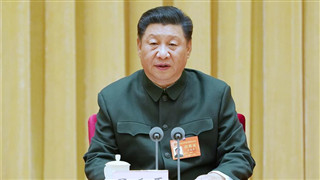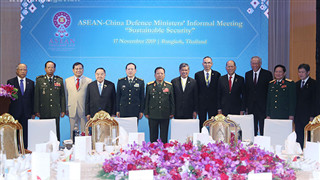By Fu Ying
The rapid downward slide of China-US relations has exceeded everyone’s expectations. Even I, who was quite pessimistic, did not foresee this nose dive. If one talks about China in Washington now, the atmosphere can best be described as paranoid.
Less than a year after President Donald Trump took office, Washington declared that the US had entered an era of "great power competition" with China as its top strategic rival. The US has taken steps big and small to bash China on trade, technology and student and personnel exchanges. It has also shifted military resources towards the western Pacific, targeting China while pressuring its allies to take the American side as it provokes tension. As for China, though it has not given up its long-held policy of co-operation, it has to fight back against the bullying fists.
Since the end of the cold war, China and the US have headed in different directions. China believes the world, having endured two world wars and a long cold war, is turning to development in a peaceful environment. China has followed this trend; it has reformed and opened up its economy and concentrated on growth. It is now the world’s second-largest economy with a global network of partners. Its participation and influence in international affairs have also grown.
In contrast, the US sought to preserve American hegemony and has endeavoured to mould other countries in ways it preferred. It has waged a series of wars and overstretched its power. The 2008 financial crisis aggravated its domestic problems and caused a decline in the quality of life for its middle class, who have yet to fully recover. American society is in the midst of a soul-searching self-examination, but some are taking the easier path of scapegoating China. American attempts to suppress China’s rise are causing global uncertainty.
The challenge now is for China and the US to handle the fractures in their relationship within the existing international system. Their choices will determine the future of humanity in the 21st century. To achieve a win-win result, both sides must accept that neither can gain all and there has to be give and take.
How does Beijing hope to shape its relationship with Washington? My observation is that China has been trying to maintain its co-operative relations with the US. Thanks to China’s proposal, Presidents Trump and Xi Jinping reaffirmed bilateral relations focused on stability, co-ordination and co-operation after meeting in Osaka in June. Trade talks have restarted.
Looking ahead, I see three scenarios. First, after ironing out the kinks, China and the US should find a new model for interaction that I would dub "co-opetition": maintaining necessary, mutually beneficial co-operation while managing unavoidable but benign competition.
This relatively ideal scenario would require lots of effort from both sides. As the Chinese saying goes, "the trees prefer calm, but the wind will not cease". The second scenario is full confrontation. There are forces in US policy circles determined to push this direction. Their ability to influence policy and public opinion is growing strong. They are already trying to decouple the countries as a prelude to confrontation.
The third scenario is the state we are in: drifting. This allows each country to delay its final strategic choice, giving it time to observe and judge the other side more calmly. The challenge lies in ensuring emerging problems are handled in a measured way.
The US appears to believe strongly that China is seeking global dominance and sees their rivalry as a battle it can’t afford to lose. This is a serious misinterpretation. In China, many believe that the US intends to stop China’s development and prevent its people from achieving their hopes for better lives. In this view, China has to resolutely fight back because it cannot allow anyone to forestall its people’s pursuit of happiness, livelihood and national prosperity.
It must be noted that China has never said its policy is to seek global supremacy or that it wants to take over the US role. Our path has been one of peaceful development; and our fight is for the legitimate and equal right to development.
The challenge for the future of China-US relations lies in whether the two can find ways to coexist in the same international system and resolve their differences. If they move towards confrontation, that may lead to the tearing apart of the world. To prevent such a prospect, the other countries also have an important role to play.
President Xi has proposed "building a community with a shared future" and promoting international relations featuring mutual respect, fairness, justice and co-operation. This idea is rooted in Chinese political and cultural wisdom and is consistent with the global trend and common interests of all. It is also the right direction for China-US relations.
(The author Fu Ying is the chairperson of the Center for International Security and Strategy and former Deputy Minister of China's Ministry of Foreign Affairs. )
Disclaimer: This article is originally published on chinausfocus.com. The information, ideas or opinions appearing in this article do not necessarily reflect the views of eng.chinamil.com.cn.











